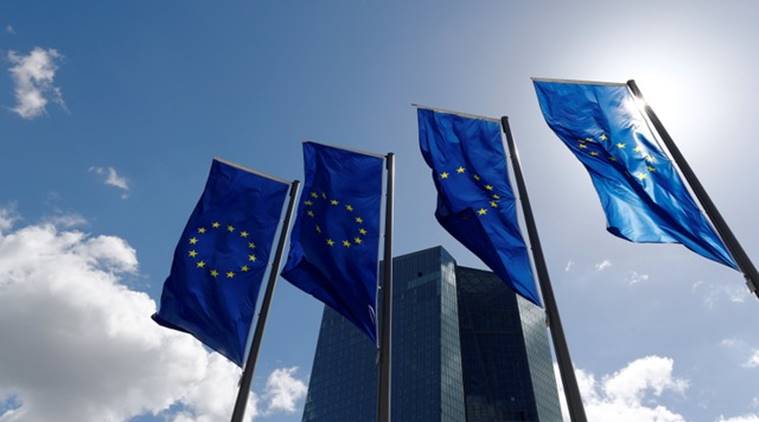 The main elements of the common budget idea are based on an agreement between France and Germany, reached this week, as well as proposals by the European Commission. (REUTERS)
The main elements of the common budget idea are based on an agreement between France and Germany, reached this week, as well as proposals by the European Commission. (REUTERS)
Euro zone finance ministers and leaders will seek agreement in the next week on a series of reforms to make the currency area more resilient to future crises. One of the main ideas is a euro zone budget. Finance ministers have discussed this and European Union leaders will do so on June 29. The main elements of the common budget idea are based on an agreement between France and Germany, reached this week, as well as proposals by the European Commission.
WHEN
It would be multi-annual, starting from 2021.
SIZE
The Commission proposed a total of 55 billion euros, of which 25 billion would come from the EU budget and would be used to support reform and convergence between economies. The remaining 30 billion would be loans, guaranteed by EU budgets, to support investments in countries facing temporary economic shocks.
France and Germany did not specify the size of the budget they want, but it is likely to be larger than the Commission’s proposal because it incorporates elements of it, as well as new sources of financing. Some countries, such as the Netherlands, do not see a need for any special euro zone budget at all.
WHERE THE MONEY WOULD COME FROM
The Commission wants the money to be part of the overall long-term EU budget, which has been financed from national contributions based on the size of member states’ economies, a chunk of value-added tax revenue and duties on imported goods. France and Germany proposed that it should be a separate pool of money and be funded by national contributions, a financial transaction levy and corporate taxes, including on firms’ digital revenues. It would also use money from the EU’s long-term budget.
HOW TO SPEND IT
France and Germany want the common budget to promote competitiveness, convergence and stabilisation in the euro zone, finance investment in innovation and human capital, and substitute national spending. They are also considering using the money to help pay unemployment benefits in countries suffering a downturn.
The Commission also aims to promote convergence of existing euro zone economies and those that want to adopt the euro, as well as support investment during economic downturns.
LOANS OR TRANSFERS
Both the Commission, and France and Germany opt for loans.